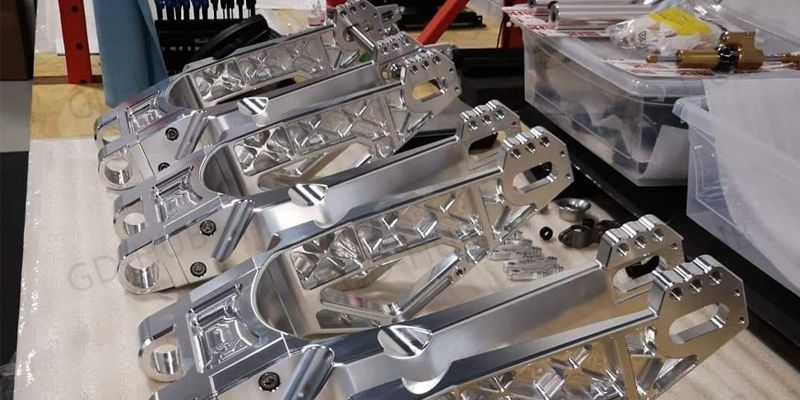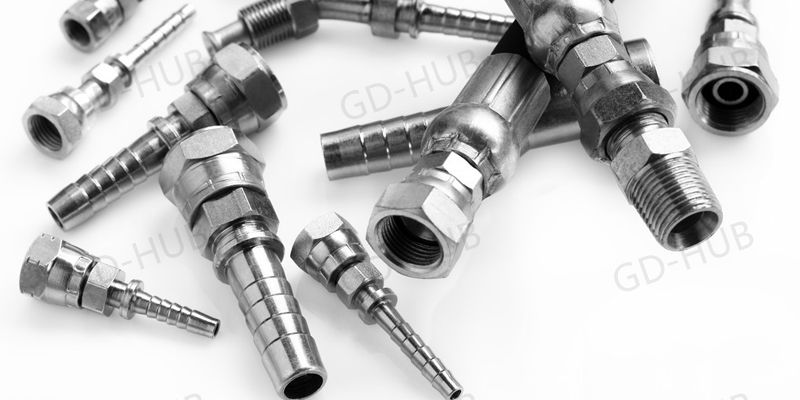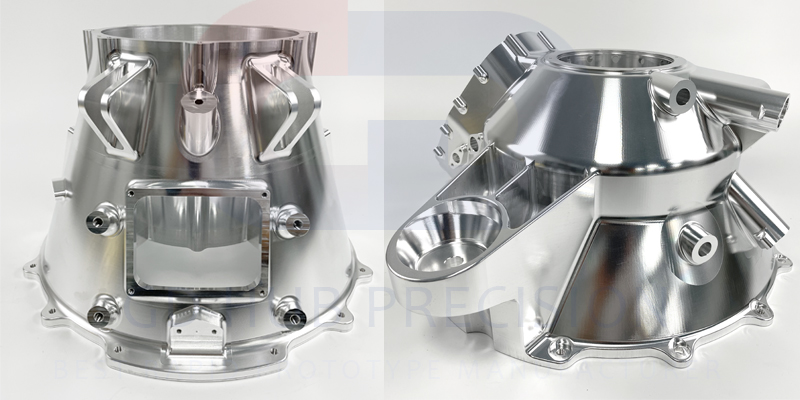
Understanding Your Needs
Define Your Requirements: Clearly understand and define what you need in terms of product specifications, materials, tolerances, and volumes.
Regulatory Compliance: Ensure the manufacturer is compliant with relevant industry standards and regulations.
Researching Potential Manufacturers
Expertise and Experience: Look for manufacturers with a proven track record in your industry or in producing similar precision components.
Technology and Equipment: Check if the manufacturer has the latest technology and equipment to meet your precision needs.
Evaluating Quality Control
Quality Assurance Processes: Investigate the manufacturer's quality control systems. Certifications like ISO 9001 can be indicators of good quality management practices.
Material Quality: Ensure the manufacturer sources high-quality materials and has robust material testing processes.

Assessing Capacity and Flexibility
Production Capacity: Verify if the manufacturer can meet your volume requirements without compromising quality.
Flexibility and Scalability: Assess their ability to scale production up or down based on your changing needs.
Considering Costs and Timelines
Transparent Costing: Look for transparent pricing models. Hidden costs can significantly impact your project budget.
Delivery Timelines: Ensure the manufacturer can meet your deadlines. Delays can have downstream impacts on your business.
Checking References and Reputation
Client Testimonials and Case Studies: Seek out reviews or case studies from previous clients.
Industry Reputation: A good reputation in the industry is often a reliable indicator of quality and reliability.
Communication and Support
Effective Communication: Strong communication channels are essential for project updates and handling any issues that arise.
After-Sales Support: Consider the level of post-production support and services the manufacturer offers.
Pitfalls to Avoid
Choosing Based Solely on Price: Opting for the cheapest option can often lead to compromised quality or additional hidden costs.
Overlooking Scalability: Failing to consider whether the manufacturer can handle your future growth can lead to challenges as your needs evolve.
Ignoring Cultural Fit: Ensuring that the manufacturer's business practices and communication styles align with yours is crucial for a smooth partnership.
Skipping Due Diligence: Not thoroughly vetting a manufacturer's capabilities, certifications, and financial stability can lead to serious project risks.
Conclusion
Selecting the right specialist precision manufacturer involves a thorough evaluation of their capabilities, quality control, capacity, and costs. Avoid common pitfalls like focusing solely on price or neglecting scalability. A good partnership with the right manufacturer can significantly contribute to the success of your project. And with GD-HUB's ability to meet all challenges, trust us to deliver the best results.

Why Choose GD-HUB:
GD-HUB has been in the industry for 13 years, and we have various international standard certificates and certificates of conformity. GD-HUB Precision Technology Co. Ltd. stands out as a reliable choice for precision manufacturing needs. We offer a range of services including CNC machining, injection molding, and 3D printing, ensuring versatility and precision in solution and production. With a focus on quality control and customer satisfaction, GD-HUB can be an excellent partner for your projects demanding high precision and expertise.
Material Diversity:
GD-HUB works with a diverse range of materials, including metals like steel, aluminum, brass, and titanium, as well as plastics, ceramics, and more, offering over 100 production-grade materials to meet your project needs.
Here's a table showcasing common metals used in CNC machining along with their key properties and typical applications:
Metal Material | Key Properties | Typical Applications |
Aluminum | Lightweight, good strength-to-weight ratio, excellent machinability | Aerospace, automotive, consumer electronics |
Stainless Steel | Corrosion resistance, high strength, somewhat challenging to machine | Medical devices, food processing, marine applications |
Brass | Easy to machine, good corrosion resistance, conducts heat and electricity well | Plumbing, electrical components, decorative items |
Copper | High thermal and electrical conductivity, ductile, corrosion-resistant | Electrical wiring, heat exchangers, automotive radiators |
Titanium | High strength, lightweight, corrosion-resistant, challenging to machine | Aerospace, medical implants, high-performance automotive |
Carbon Steel | High strength, relatively inexpensive, varying machinability depending on carbon content | Construction, automotive, heavy machinery |
Tool Steel | High hardness, wear resistance, can be heat treated | Cutting tools, molds, dies |
CNC machining and injection molding are two common manufacturing processes used for shaping plastic materials. Each process is suitable for a range of plastics, each with unique properties and applications. Here's a table outlining various plastic materials that can be used for both CNC machining and injection molding:
Plastic Material | CNC Machining Suitability | Injection Molding Suitability | Key Properties | Typical Applications |
ABS (Acrylonitrile Butadiene Styrene) | Yes | Yes | Strong, impact-resistant, easy to mold | Consumer goods, automotive parts, toys |
Polycarbonate (PC) | Yes | Yes | High impact strength, transparent, heat resistant | Eyewear lenses, bulletproof glass, medical devices |
Polypropylene (PP) | Yes | Yes | Chemically resistant, fatigue resistant, low friction | Automotive parts, living hinges, packaging |
Polyethylene (PE) | Yes | Yes | High chemical resistance, low moisture absorption | Bottles, piping, plastic bags |
Nylon (Polyamide, PA) | Yes | Yes | High strength, wear-resistant, low coefficient of friction | Gears, bearings, automotive components |
Acetal (Delrin) | Yes | Yes | High stiffness, low friction, good dimensional stability | Gears, bushings, medical devices |
PVC (Polyvinyl Chloride) | Yes | Yes | Good chemical and corrosion resistance, rigid | Pipes, window frames, medical devices |
POM (Polyoxymethylene) | Yes | Yes | Similar to Acetal, high stiffness, low friction | Precision parts, gear wheels, ski bindings |
Teflon (PTFE) | Yes | Limited (due to high melting point) | High temperature resistance, non-stick, chemically inert | Cookware coatings, seals, bearings |
PMMA (Acrylic) | Yes | Yes | Transparent, UV resistant, good light transmission | Signage, displays, light fixtures |
GD-HUB offers a variety of precision manufacturing services, including:
Sheet Metal Fabrication Services
GD-HUB's services cater to specific needs in various industries:
Automotive: We produce precision engine components, chassis parts, and interior/exterior elements.
Aerospace: Components for aircraft engines, structural parts, and instrumentation are manufactured.
Energy: GD-HUB supplies parts for renewable energy equipment, oil and gas machinery.
Medical Devices: Diagnostic equipment components, and other medical device parts.
Electronics: This includes manufacturing parts for consumer electronics, communication devices, and other electronic equipment.
GD-HUB is not just a service provider; we are your partners in innovation. Our commitment to precision, efficiency, and flexibility makes us the ideal choice for your prototyping and manufacturing needs. Whether you're looking to bring a complex design to life or seeking a partner for high-precision manufacturing, GD-HUB is here to turn your ideas into reality.
Ready to experience the difference that GD-HUB can make in your manufacturing process? Contact us today to discuss your unique requirements and discover how our precision manufacturing services can benefit your project. Let's shape the future of manufacturing together with GD-HUB's cutting-edge technology and expert team.
Contact GD-HUB Now – Your innovation awaits!